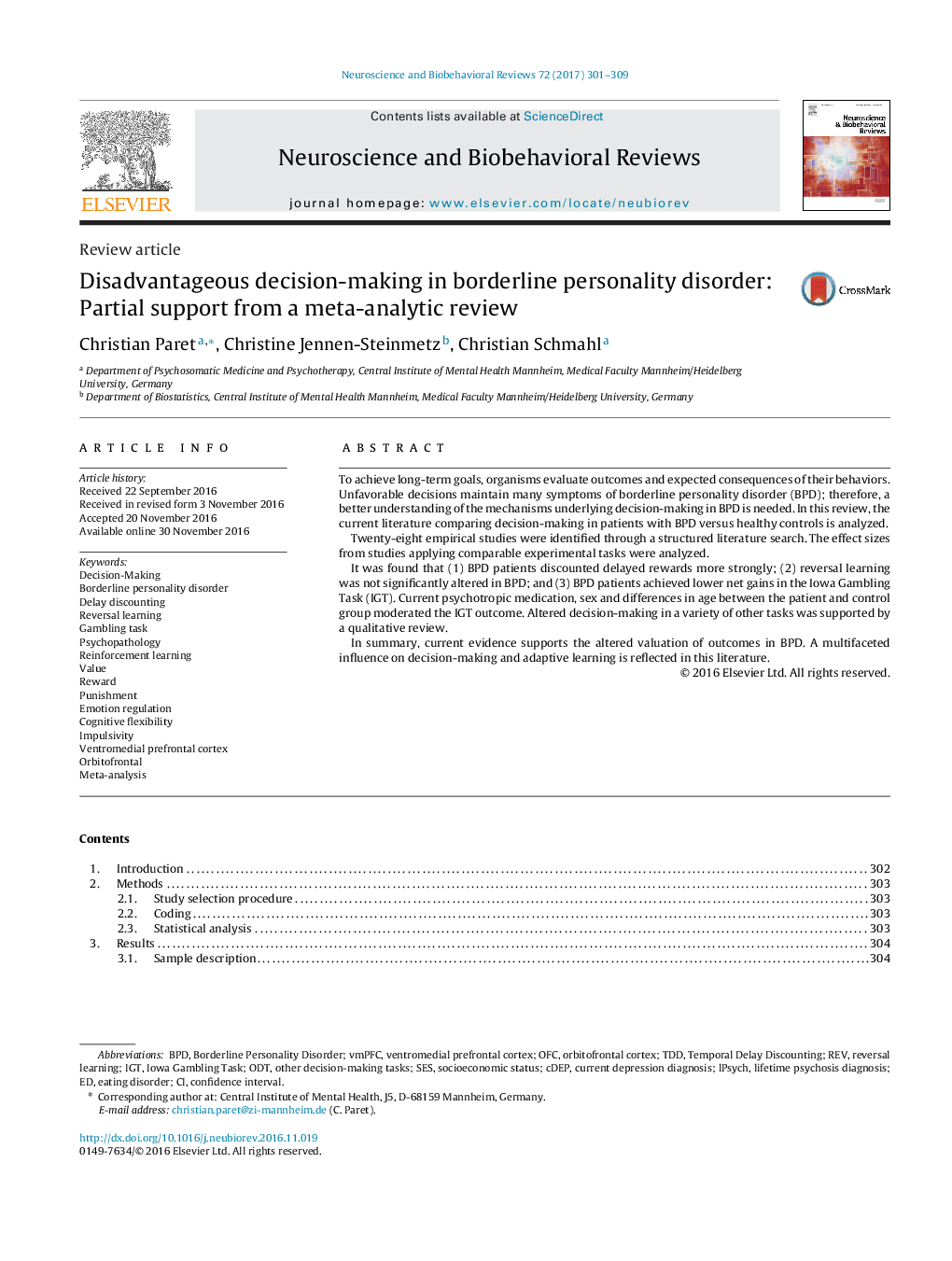| Article ID | Journal | Published Year | Pages | File Type |
|---|---|---|---|---|
| 5043657 | Neuroscience & Biobehavioral Reviews | 2017 | 9 Pages |
â¢Meta-analysis supports altered subjective valuation of expected outcomes in BPD.â¢Impaired adaptive learning is not clearly linked to BPD in current literature.â¢Sex, age-matching and medication status were found to moderate group differences.
To achieve long-term goals, organisms evaluate outcomes and expected consequences of their behaviors. Unfavorable decisions maintain many symptoms of borderline personality disorder (BPD); therefore, a better understanding of the mechanisms underlying decision-making in BPD is needed. In this review, the current literature comparing decision-making in patients with BPD versus healthy controls is analyzed.Twenty-eight empirical studies were identified through a structured literature search. The effect sizes from studies applying comparable experimental tasks were analyzed.It was found that (1) BPD patients discounted delayed rewards more strongly; (2) reversal learning was not significantly altered in BPD; and (3) BPD patients achieved lower net gains in the Iowa Gambling Task (IGT). Current psychotropic medication, sex and differences in age between the patient and control group moderated the IGT outcome. Altered decision-making in a variety of other tasks was supported by a qualitative review.In summary, current evidence supports the altered valuation of outcomes in BPD. A multifaceted influence on decision-making and adaptive learning is reflected in this literature.
